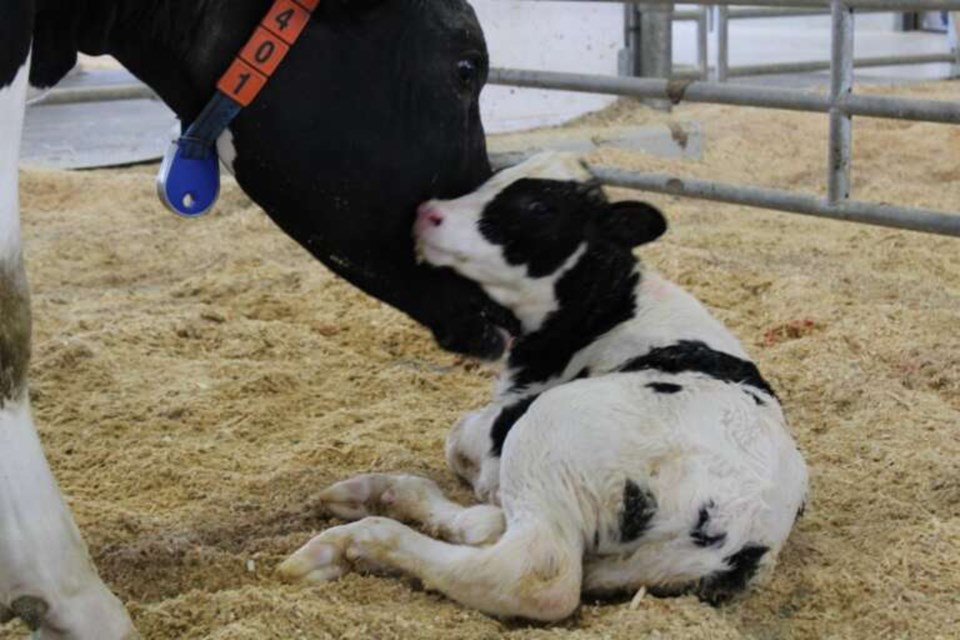A research project aimed at reducing cow burps has been recognized as the University of Guelph’s greatest innovation of 2023. The methane management project led to the discovery of a new emissions reduction technique for dairy cattle.
University officials announced Thursday the project has received the school’s Innovation of the Year award.
“I believe genomic selection holds significant potential in addressing challenging traits,” said project team member Christine Baes in a news release. “Whether it’s grappling with the complexities of climate change or other environmental issues, the right people and a strategic movement forward can play a crucial role in contributing to their resolution.”
The team developed a national genetic evaluation to identify dairy cattle with traits that help reduce methane emissions, which are known to contribute to climate change.
They gathered information on milk, feed intake, methane emissions, fertility and overall health of dairy cattle, allowing them to create a dataset for genetic selection.
Milk samples were then used to accurately predict methane emissions for individual cows, the news release explains.
The project is in response to the dairy cattle industry’s state goal of achieving net-zero emissions status by 2050.
“At the University of Guelph, we transform knowledge into real-world innovations,” said Rene Van Acker, the university’s interim vice-president of research. “Driven by ingenuity, we’re dedicated to finding solutions that address global challenges, making a lasting impact on the world around us.”
Baes and her team collaborated with two key industry partners: Lactanet, a milk recording agency responsible for national genetic evaluations in dairy; and Semex, a genetics company.
Approval was recently granted for the next step in growing the project – collecting large-scale data on commercial farms.
“The goal is to collaborate with Environment and Climate Change Canada as well as dairy nutritionists and life cycle analysts to quantify greenhouse gas emissions from dairy cattle more accurately,” said Baes in the release. “The ultimate goal is to contribute to Canada’s greenhouse gas emission inventory in reducing its environmental footprint.”
The methane emissions reduction project was funded by several organizations including the Ontario Agri-Food Innovation Alliance, a collaboration between the Government of Ontario and the University of Guelph, and partly took place at the Ontario Dairy Research Centre owned by the Agricultural Research Institute of Ontario and managed by U of G through the Alliance.



